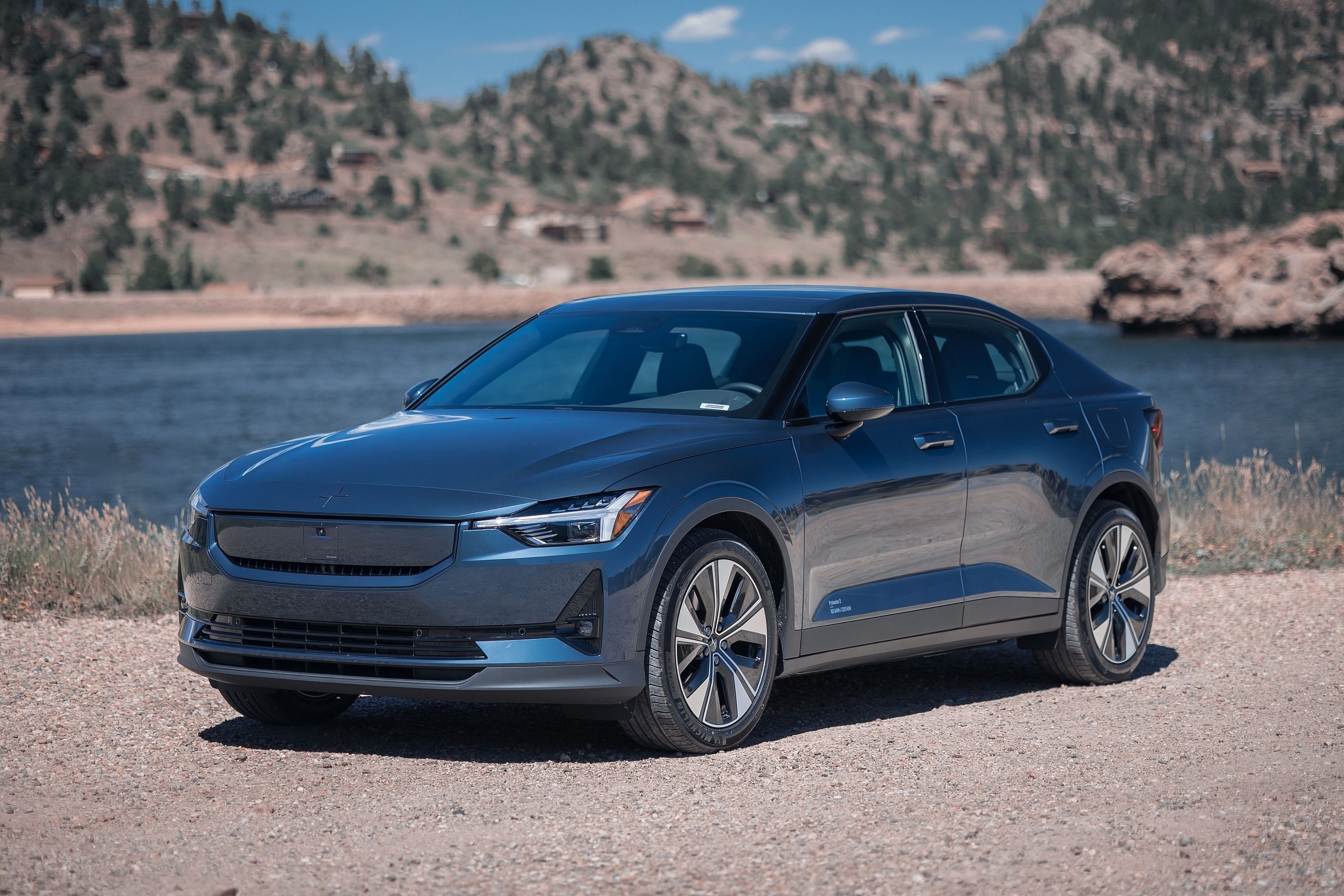
Electric car companies Polestar and Rivian have collaborated on a new Kearney study that shows the automotive industry will overshoot the Intergovernmental Panel on Climate Change (IPCC) 1.5-degree pathway by a considerable amount.
According to the report, the industry as a whole will surpass the pathway by at least 75% by the year 2050. Currently, passenger vehicles account for 15% of all greenhouse gases emitted globally. The IPCC says that, in order to achieve climate change goals, emissions need to be cut by 43% by 2030.
The findings of the report show that the automotive world is nowhere near reaching its goals. Rather worryingly, it will have spent its entire CO2e budget by 2035.
Despite the disquieting forecast, there's still time to make some important changes.
If manufacturers take action between now and 2030, it's possible to get things back on track. The proposed pathway is built around three constructs. The first looks at how quickly ICE-powered vehicles need to be replaced by EVs.
While this is an important part, says Polestar, it's not enough, and the second and third steps also need to be implemented. Step two focuses on increasing the use of renewable energy. This will enable electric vehicles to glean clean energy; many countries are still reliant on coal or nuclear energy, neither of which can be described as environmentally friendly.
Several automakers have committed to using renewable energy. In the case of General Motors, that will come by 2025 - a few years early, which will help in a small way.
The third step centers around reducing emissions within automotive supply chains. By utilizing renewable energy, suppliers and manufacturers can work together to cut their pollution output. The use of sustainable components will also help reach this shared goal, says Polestar.
"Car companies may be on different paths when it comes to brand, design, and business strategies, and some won't even admit that the road to the future is electric. I believe it is and that the climate crisis is a shared responsibility - we must look beyond tailpipe emissions," said Polestar's Fredrika Klaren. "This report clarifies the importance of acting now and acting together. There is a clear cost to inaction, but there is also a financial opportunity for innovators who find new answers to the challenges we face."
Her comments are a clear dig at Toyota, but she has a valid and serious point. Doing nothing will put the planet in an irreparable state.
The Kearney study has been shared with several automakers across the world, along with an invite to sit and discuss the way forward. It's great to see car companies being proactive and taking responsibility, but there's also validity in the arguments provided by Toyota, which are against full-scale electrification.
Polestar is putting its money where its mouth is. With the reveal of the updated Polestar 2, the Swedish brand claims carbon emissions for variants equipped with the 82 kWh battery have been reduced by 1.1 tons, thanks to an improved cell chemistry design.
"The report's findings are sobering. Our hope is that this report lays the groundwork for the automotive industry to collaborate in driving progress at the pace and scale we need," added Rivian's Anisa Costa.


